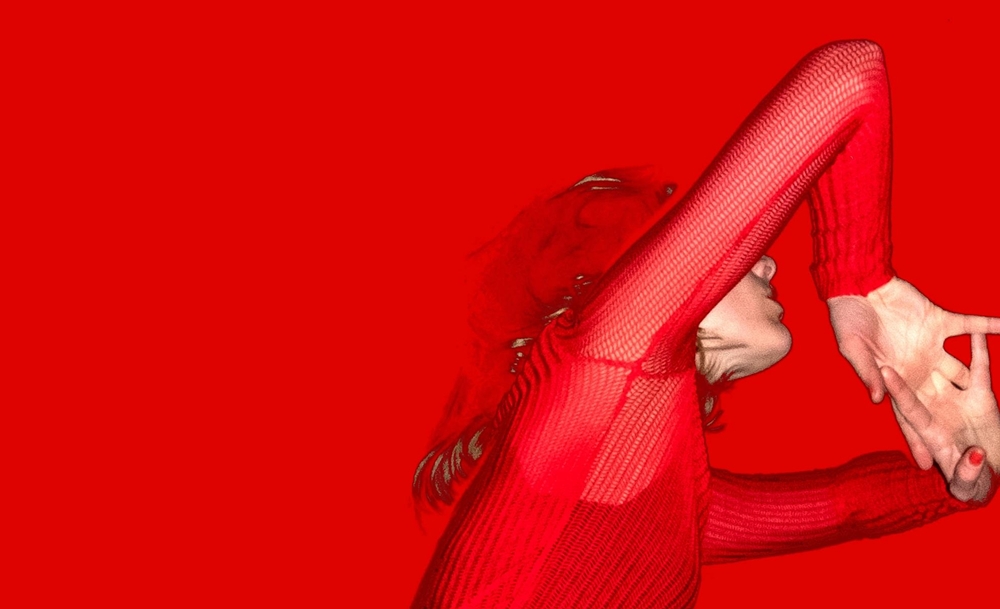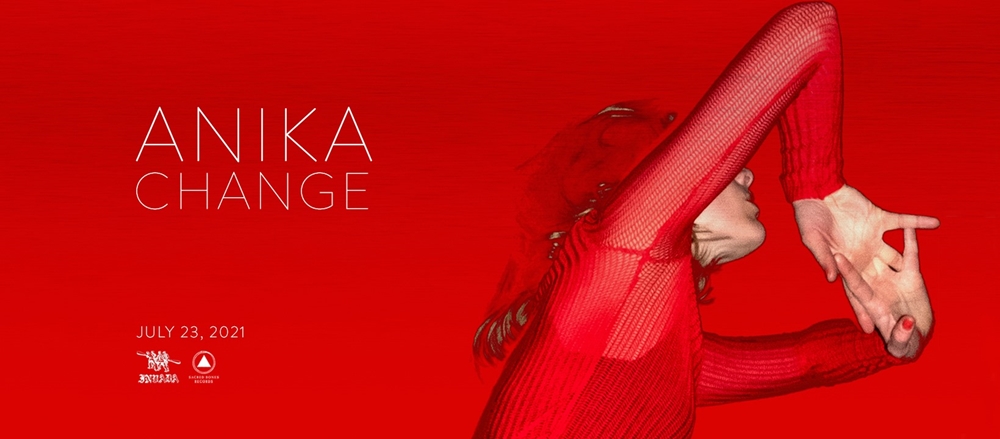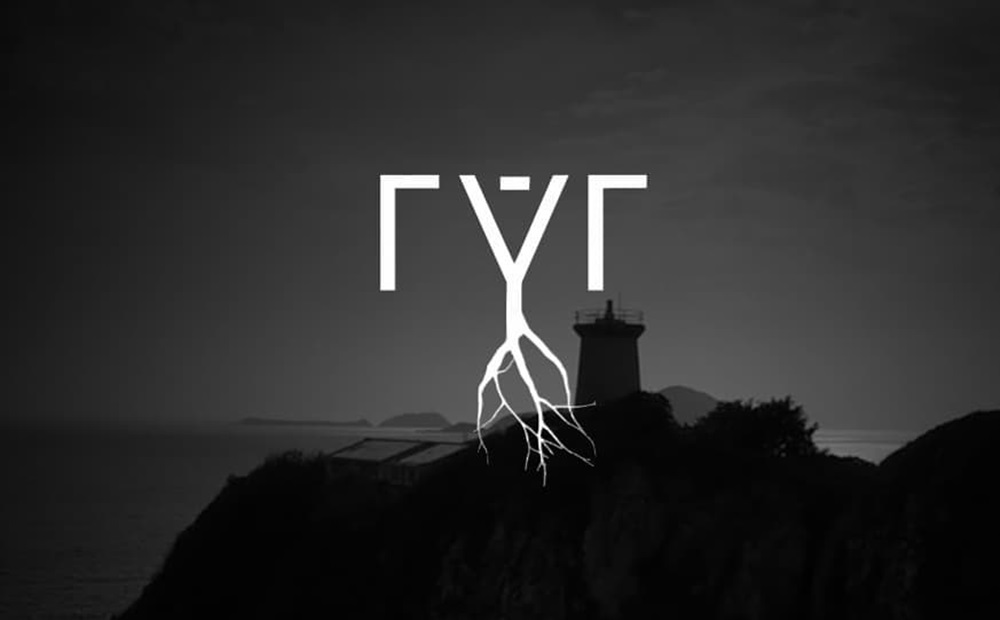Anika a.k.a Annika Henderson (D/GB), born 1987 in Woking England, is a hybrid artist. The former journalist made a name for herself in the electronic music scene, with her experimental sound collages, confrontational texts, and unique way of performing live solo.
Her breakthrough came in 2010 with the release of the cult-hit, experimental LP, ‘Anika’ (Stones Throw /Invada), which she recorded with Geoff Barrow and band Beak> in Bristol, a wholly unexpected and unplanned affair, which began Anika’s long and winding road into the music, film, poetry and arts scenes. Her most known song remains ‘I Go To Sleep‘, a cover of ‘The Kinks‘ 1965 classic.
Since, she has collaborated with a wide spectrum of musicians, artists, and film-makers, among them: Tricky, Gudrun Gut and Beate Bartel (Malaria!, Liaisons Dangereuses), Jandek, Shackleton, Michael Rother (Neu!), Dave Clarke, PBDY (Brainfeeder), Melanie Jame Wolf, SYNY, T.Raumschmiere, Andreas Reihse, Doireann O’Malley, Ricardo Domeneck and Yann Tiersen.
She also provided the distinct voice to Rainer Kohlberger’s ‘It Has To Be Lived Once and Dreamed Twice‘, which premiered at the Berlinale 2019. Alongside, she formed the band Exploded View in Mexico City, in 2015, along with local synth freak legends Hugo Quezada, Martin Thulin, and Amon Melgarejo. They have since released 2 LPs and an EP on Sacred Bones, touring the Americas and Europe extensively. Not content with human collaborators, the artist developed a lyric-writing robot with computer programmer Raul Sanders and took to the stage with it, performing and improvising its regurgitated produce live over music.
She interweaves dub, post-punk, psychedelic, with shadows of dnb and a strong emphasis on the voice. Henderson operates as a poet, composer, musician, DJ, photographer, radio host, and film-maker.
Anika ‘Change’ is out now!
When asked to describe the circumstances that influenced her beautifully fraught new work, Berlin-based musician Anika quickly articulates a set of feelings and unpredictable circumstances that are familiar to anyone who tried to make art—or simply tried to live through—the recent global pandemic. “It’s a moment caught in time,” she says of ‘Change’, her much-anticipated new record.
Given that it has been 11 years since the release of her last solo album, 2010 cult-favorite Anika, the artist suddenly found herself with a lot to say. “This album had been planned for a little while and the circumstances of its inception were quite different to what had been expected. This colored the album quite significantly. The lyrics were all written there on the spot. It’s a vomit of emotions, anxieties, empowerment, and of thoughts like—How can this go on? How can we go on?”
Having worked collaboratively in the past with the likes of BEAK> and Mexico City’s Exploded View, ‘Change’ was ultimately the product of necessity. “After recording the initial ideas alone at Klangbild studios in Berlin, a few months later and by some stroke of luck, Mr. Martin Thulin of Exploded View, managed to make his way over from Mexico, to co-produce the album with me and play some live drums and bass,” recalls Anika. “Between Reality Baitz and Impression Recordings in Berlin, we managed to get the album together.”
The intimacy of its creation and a palpable sense of global anxiety are seemingly baked into the DNA of ‘Change’. Spread across nine tracks, the central feeling of the record is one of heightened frustration buoyed by guarded optimism. The songs offer skittering, austere electronic backdrops reminiscent of classic Broadcast records or High Scores-era Boards of Canada, playing them against Anika’s remarkable voice—Nico-esque, beautifully plaintive, and—in regards to the record’s subject matter—totally resolute. Incantatory tracks like “Naysayer” and “Never Coming Back” are both, as Anika explains them, both a call to arms and a warning. “’Never Coming Back’ was written after reading Rachel Carson’s Silent Spring,” she explains.
“I was living in the old East countryside outside of Berlin, where there seemed to be no shortage of birds. Apparently, their numbers have dropped significantly, but it is one of these changes that we never really stop and notice. We take things for granted until it’s too late. With all this other noise going on, care for the environment has quickly been moved to the back-burner. So long as we get what we want NOW and on-demand, who cares about whether we are taking care of the future?”
Recorded at a time when literally everyone in the world was being forced to take stock, rethink, and reimagine their own place in the cosmos of things, Anika provides the wisened perspective of an outsider. It’s a perspective that is not lost on the British ex-pat and former political journalist. “‘Sand Witches’ is about England. My old home,” she says.
I gave up my UK passport when I moved to Berlin 10 years ago. Now I am a foreigner in both lands, belonging to neither. Sometimes I find it hard to recognize the place I came from.
Despite the subject matter and the circumstances around its creation, ‘Change’ itself is ultimately a treatise on optimism. The title track presents the album’s message writ large: I think we can change, we all have things to learn, about ourselves and about each other. To end the record on such a sanguine note might be one of ‘Change’ ’s most revolutionary gestures.
“Another book that affected the brain of this album was Hannah Arendt’s The Banality of Evil,” explains Anika. ”In the context of the Trump era, it was interesting to see how ‘evil’ was put on trial after his downfall. When evil loses, how is it put on trial? How do those who actually held the hand of evil during the evil, sneak into the seat of judge and jury during the trial, booing with the crowd as if they had no involvement and were not cashing in on the evil’s wild rampage. How are all the evils pinned on that one individual as a way to pardon a whole society that partook in that evil? I suppose this is what ‘Change’ is about, setting out the hope that we can change, that even those who cheered on the evil can ultimately change their ways.”
Follow ANIKA on:
Facebook | Instagram | Website | Twitter | Badncamp





